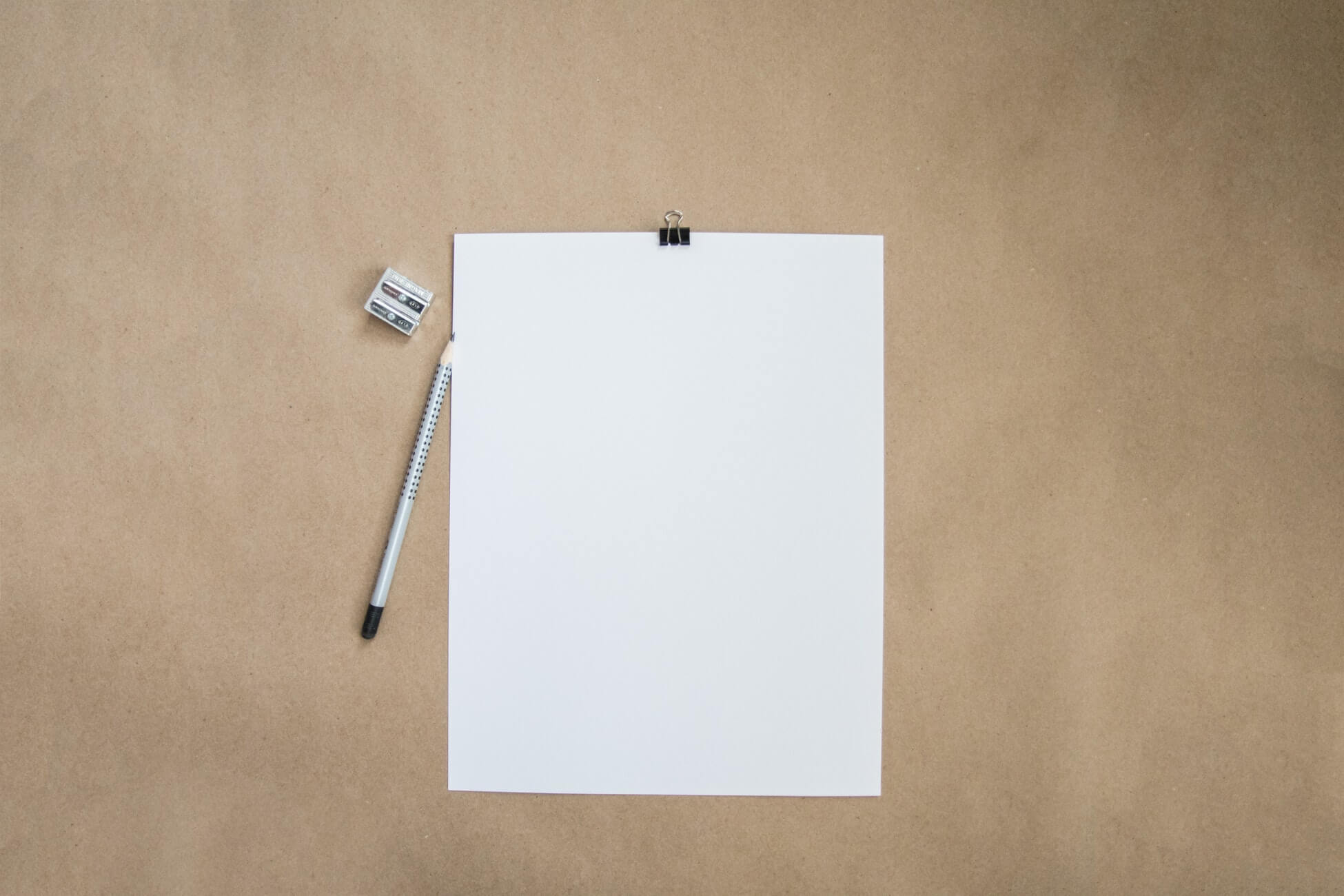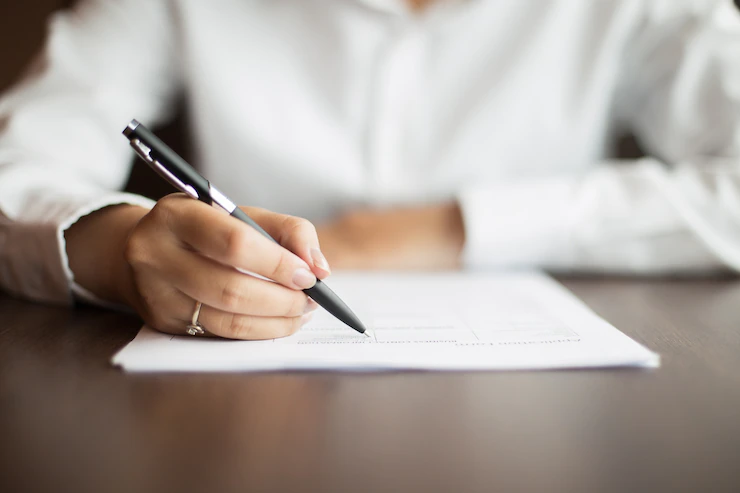
Reasons to Send Follow-Up and Thank-You Letters?
Follow-up and thank-you letters are important forms of communication used in professional settings to express gratitude, reiterate interest, and maintain relationships with employers, clients, colleagues, or anyone else you've interacted with in a business or professional context. Here are some key points you should know about follow-up and thank-you letters:
Follow-Up Letters
A follow-up letter is usually sent after an initial meeting, job interview, business presentation, or any other interaction that requires acknowledgment or additional information.
Interview thank you note shows appreciation for the opportunity, confirms important details, expresses continued interest, and reinforces your qualifications or key points discussed during the interaction. Following up promptly (within 24-48 hours) is crucial to make a positive impression and demonstrate professionalism.
Thank-You Letters
A thank-you letter is typically sent after someone has provided you with assistance, a gift, a referral, or after a job interview or business meeting. The main purpose of a thank-you letter is to express genuine gratitude for the person's time, effort, or support. Writing a thank you letter after an interview can help strengthen relationships, leave a positive impression, and increase the likelihood of future cooperation or opportunities.
Content and Structure
Both follow-up and thank you email for job offer should begin with a polite and respectful salutation, addressing the recipient appropriately (e.g., "Dear Mr./Ms. Last Name" or "Hello [First Name]"). The opening paragraph should express gratitude and briefly mention the reason for writing (e.g., following up on a meeting or thanking them for their time and consideration). Describe what you appreciated or discussed during the interaction in the body paragraphs. Mention key points, contributions, or insights that were particularly valuable to you. Customize each letter to make it personalized and relevant to the recipient. Avoid using generic templates. Conclude the job interview thank you letter with a polite closing (e.g., "Sincerely," "Best regards," "Thank you again," etc.) and your full name.
Email vs. Handwritten Letters
Email is the preferred method for sending follow-up and thank-you letters in most professional settings due to its speed and convenience. However, a handwritten thank-you note can make a more memorable and thoughtful impact on certain occasions or relationships, such as a formal job interview or a significant business deal.
Proofreading and Etiquette
Always proofread your letters for spelling, grammar, and formatting errors before sending them. Keep the tone professional, positive, and concise. Avoid demanding or pushy language, and don't use the follow-up or thank-you letter as an opportunity to ask for favors or make additional requests.
Timing is Crucial
Send your follow-up or thank-you letter promptly, preferably within 24-48 hours of the interaction. Timeliness demonstrates your enthusiasm and respect for the recipient's time.
Addressing Multiple Interviewers
If you had multiple interviewers, consider sending individualized follow-up or thank-you letters to each person. This approach shows your respect for their time and individual contributions during the interview process.
Thank-You Letter for Rejection
If you receive a rejection for a job or opportunity, consider sending a gracious thank-you letter to express your appreciation for the consideration. This gesture leaves a positive impression and may open doors for future opportunities.
Purpose
The primary purpose of a follow-up letter is to maintain communication with the interviewer or contact after an interaction. It serves as a polite reminder of your interest in the opportunity and helps you stand out among other candidates. On the other hand, a thank-you letter expresses appreciation and gratitude for the time, consideration, and insights provided during the interview or meeting.
Reasons to Send Follow-Up Letters
There are excellent reasons to send follow-up letters after a job interview. Here's a breakdown of each point:
A reminder of Your Interest in the Position
A follow-up letter allows you to reaffirm your enthusiasm for the position and the company. It shows that you are genuinely interested in the opportunity and eager to move forward in the selection process.
Opportunity to Reiterate Your Qualifications
In the follow-up letter, you can highlight specific skills, experiences, and achievements that make you a strong fit for the role. Emphasizing these qualifications reinforces your candidacy and reminds the interviewer of your potential value to the organization.
Chance to Address Any Issues or Questions
The interviewer might raise specific concerns or questions about your application or background. A follow-up letter allows you to provide additional information or clarify any points that may have been unclear during the interview.
Shows Professionalism and Courtesy
Sending a follow-up letter demonstrates professionalism and good manners. It shows that you value the interviewer's time and effort and take the application seriously.
Can Help You Stand Out from Other Candidates
Many job applicants may neglect to send a follow-up letter, so doing so sets you apart from the competition. It shows you are proactive, thoughtful, and committed to pursuing the opportunity.
Builds a Lasting Impression
A well-crafted follow-up letter can leave a positive and memorable impression on the interviewer. It reminds them of your strong points and may influence their decision-making process in your favor.
Strengthens Your Brand
The follow-up letter is an extension of your brand. It allows you to showcase your communication skills, attention to detail, and overall professionalism, reinforcing the image you want to portray to potential employers.
Keeps the Conversation Going
The follow-up letter can help keep the lines of communication open between you and the interviewer or employer. It encourages further dialogue and can lead to additional opportunities for engagement.
Reasons to Send Thank-You Letters
Sending thank-you letters after various professional interactions can be highly beneficial. Here's a breakdown of the reasons to send thank-you letters:
- Demonstrates gratitude and appreciation. A thank-you letter is a simple yet powerful way to express your genuine gratitude and appreciation to the recipient for their time, assistance, or any other support they provided.
- Can help establish a personal connection with the interviewer or contact. A well-crafted thank-you letter can help you leave a positive and lasting impression on the recipient. It shows that you value the relationship and care about the interaction beyond the immediate transaction.
- Opportunity to reiterate interest and qualifications. In a thank you for job offer, you can reaffirm your interest in the opportunity or express your enthusiasm for future collaborations. It also allows you to re-emphasize your qualifications or points discussed during the interaction.
- Shows attention to detail and professionalism. Taking the time to write a thoughtful thank-you letter demonstrates your attention to detail and professionalism. It reflects positively on your communication skills and overall work ethic.
- Can help keep you top of mind for future opportunities. A thank-you letter keeps you on the recipient's mind, especially during job interviews or business meetings. It increases the likelihood that they will remember you when relevant opportunities arise.
- Strengthens relationships and fosters goodwill. Thank-you letters are not just about immediate gains; they contribute to building stronger professional relationships and fostering goodwill between you and the recipient.
- Differentiates you from others. Sending a well-written thank-you letter is a gesture that not all individuals make, so it can help you stand out and be remembered favorably among others who may have interacted with the recipient.
Tips for Writing Effective Follow-Up and Thank-You Letters
Writing successful follow-ups and employment thank you notes necessitates attention to detail and a professional demeanor. To make sure your letters have an impact, follow these suggestions:
- Personalization and customization for each recipient. Avoid using generic templates, and make each thank you letter unique to the individual or organization you are addressing after getting hired. Refer to specific points discussed during the interaction to show that your letter is tailored to them.
- Timeliness and promptness in sending the letters. Send your follow-up or thank-you letters as soon as possible, ideally within 24-48 hours after the meeting or interview. Promptness demonstrates your enthusiasm and professionalism.
- Use of professional language and tone. Keep the language formal, polite, and professional throughout the letter. Avoid using overly casual language or slang, even if you feel you had a friendly interaction.
- Gratitude and appreciation are expressed throughout the letter. A job interview thank you letter shows genuine appreciation and thankfulness for the recipient's time, assistance, or consideration. Expressing gratitude sets a positive tone for the letter and leaves a lasting impression.
- Reiteration of qualifications and interest in the position or opportunity. In follow-up letters, remind the recipient of your qualifications and how you can add value to the organization. In thank-you letters, reiterate your interest in the opportunity or express your enthusiasm for future collaborations.
- Highlight specific points of discussion. Refer to specific topics or ideas discussed during the interaction. This demonstrates active listening and shows that you were fully engaged in the conversation.
- Keep it concise and focused. Avoid unnecessary fluff or excessive detail, but ensure you cover the essential aspects of your message.
- Proofread for errors. Typos and grammar mistakes can detract from your professionalism. Always proofread your letters thoroughly before sending them.
- Use an appropriate format. Consider sending a standard email or a handwritten thank-you card for formal situations such as job interviews or important business meetings. For less formal interactions, an email may be sufficient.
- Include your contact information. Provide your contact details, such as email address and phone number, so the recipient can easily reach you if needed.
- Close with a polite and professional sign-off. Use a courteous closing phrase such as "Sincerely," "Best regards," or "Thank you again."
Conclusion
Follow-up and thank-you letters are valuable tools in your job search or networking efforts. They provide an opportunity to leave a positive impression, reiterate your qualifications and interests, and demonstrate your professionalism and appreciation.
Frequently Asked Questions and Answers
Q1. How soon after the interview should I send follow-up and thank-you letters?
It's best to send a job interview thank you note within 24 to 48 hours after the interview or meeting. This timeframe ensures that your communication remains fresh in the interviewer's mind.
Q2. In what cases should you not send follow-up or thank-you letters?
It's generally advisable to send an interview thank you note and thank you email for job offer after a job interview or any professional interaction. However, if you sense that the interviewer or company prefers minimal contact, you may choose not to send such letters.
Q3. What is the optimal amount of follow-up and thank-you letters?
In most cases, one follow-up letter and one thank-you letter are sufficient. Sending multiple letters may come across as excessive and may not be well-received. Keep your communication concise and focused to make a positive impact.
